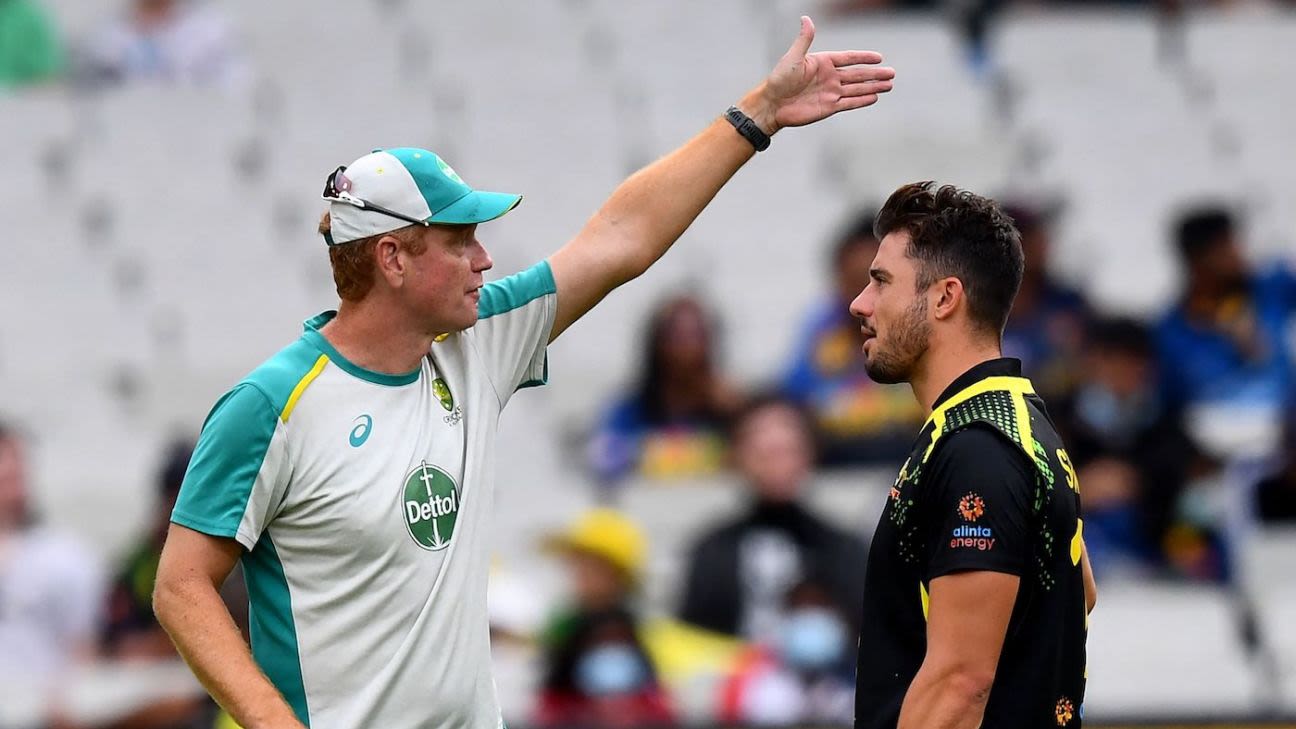McDonald: Australia were ‘one-dimensional’ and ‘too predictable’ in third T20I, but it’s been a chance to learn
The Melbourne chase was never in the realms of what Dasun Shanaka achieved in Pallekele – Sri Lanka needed 28 off the last three overs and nine off the last – but Sydney had provided a warning when they ransacked 45 off the last three before Josh Hazlewood’s five-run Super Over decided the contest.
The latest contest, with the series decided after Australia went 2-0 up in Colombo, again saw Aaron Finch give his team the chance to defend as he had done in Melbourne instead of continuing with the successful bowl-first model. There was little broader consequence in the outcome of the game for Australia, but that would not be the case in a World Cup knockout where the decision to defend could be taken out of their hands.
As in Melbourne, it was Jhye and Kane Richardson who were given the 19th and 20th overs of the innings, but it also went wrong for the previously outstanding Hazlewood who missed his length and went for 22 in the 18th over having started with remarkable figures of 3-1-3-2.
“We feel that pressure probably took us away at times from what made us really good,” McDonald said. “We’ve been really good over a period of time and even last night you could argue that for 34 overs that we playing really good cricket. We’ve got some personnel who are getting exposed to situations which is always a positive.
“There were a couple of areas we could tidy up, no doubt about that. When you get put under that type of pressure…we didn’t execute as well as we may have hoped to in that situation but full credit to an innings of that quality, it deserves the result it got and it was a great game. Unfortunately we were on the wrong side of that but plenty of opportunities to learn from those types of situations.”
The next opportunity Australia will have to fine-tune their T20 game is a three-match series in India in mid-September before the final lead-in to the World Cup with matches against West Indies and England at home.
The five games in Sri Lanka will likely see most of Australia’s squad get some match time fitness permitting, particularly among the quick bowlers who will be rotated amid a tight schedule. Allrounder Cameron Green, who made a century for Australia A last week, will not be available to bowl for the first two matches as a cautious approach is taken with his workload.
“He’s just a fraction behind where we’d like him to be so we’ll go on the conservative side there,” McDonald said. “But the three games back in Colombo we feel he’ll be well positioned to fill his full capabilities in being an allrounder.”
With Marsh also unavailable at least for the start of the series Australia may need to find 10 overs between Glenn Maxwell, Marcus Stoinis and Marnus Labuschagne depending on the final balance of their side.
For all the latest Sports News Click Here

